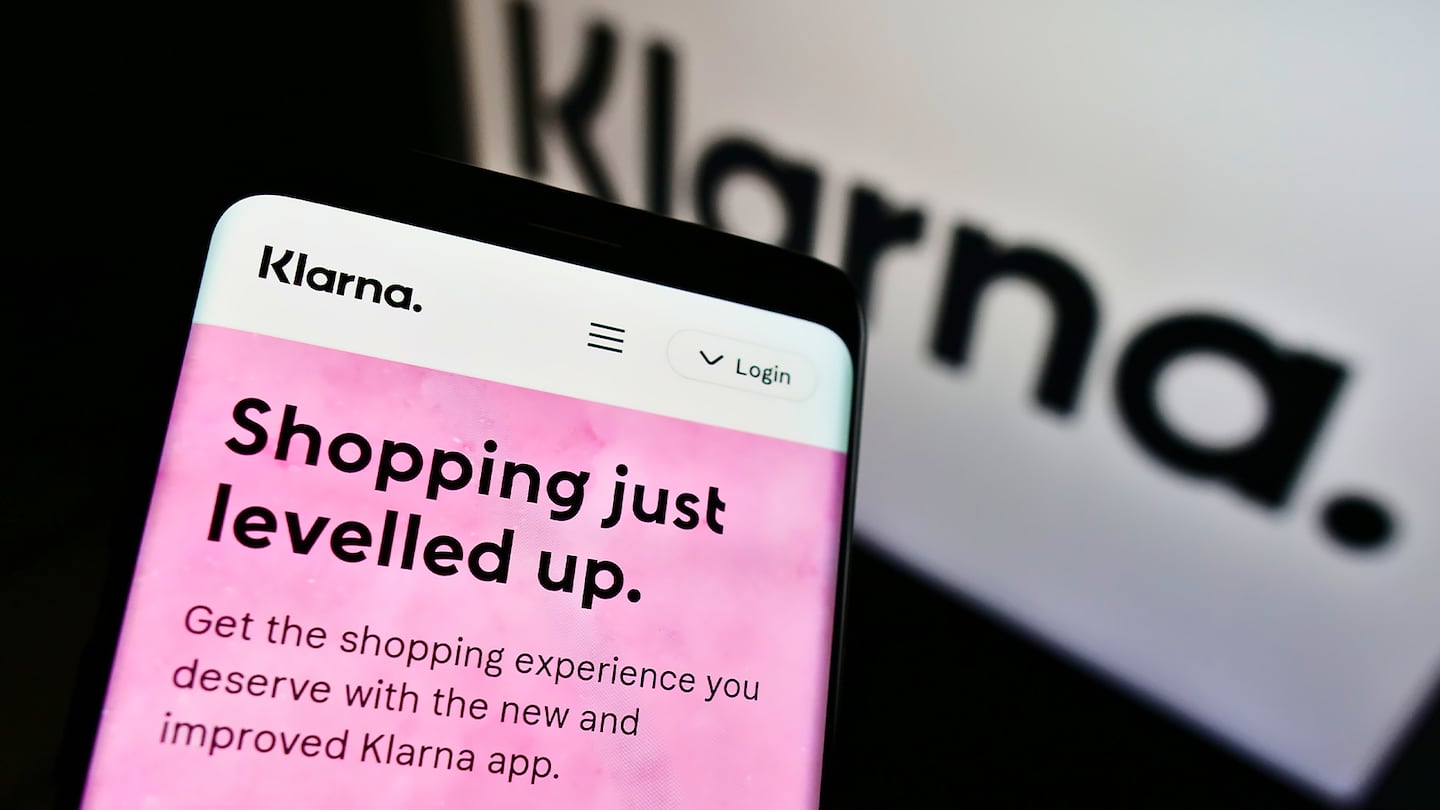
The Business of Fashion
Agenda-setting intelligence, analysis and advice for the global fashion community.

Agenda-setting intelligence, analysis and advice for the global fashion community.

Klarna Bank AB is in talks to raise new equity at a valuation as low as $6 billion, a fraction of the $45.6 billion it commanded last summer as it became Europe’s most valuable startup, according to people with knowledge of the matter.
The buy-now, pay-later giant is in talks with investors about the new funding round, said some of the people, asking not to be identified discussing a private matter. The $6 billion figure is drastically lower than the $15 billion mark reported as being negotiated last month.
Employees may be granted new equity options at the lower valuation, as the majority of existing options bear no value. Klarna’s valuation discussions remain in flux and it’s possible the level could land closer to $10 billion, some of the people said.
A Klarna representative declined to comment, saying the company doesn’t discuss fundraising or valuation speculation. The Wall Street Journal earlier on Friday reported that venture capital firm and backer Sequoia may lead a roughly $650 million round valuing Klarna at as low as $6.5 billion.
ADVERTISEMENT
The Swedish lender, which offers buy-now, pay-later credit to more than 147 million global active users, posted an operating loss of 2.54 billion krona ($245 million) in the first quarter, and 6.58 billion krona last year. It has 400,000 retail partners, including Nike Inc., Ikea, Sephora and Expedia Group Inc, its website shows.
Led by Chief Executive Officer Sebastian Siemiatkowski, Klarna’s backers include Dragoneer, Permira, SoftBank Group Corp.’s Vision Fund 2 and Silver Lake. The lender, which is regulated by the Swedish Financial Supervisory Authority, recently cut staff in an effort to curb costs.
A new valuation for Klarna would align with a correction in public markets just as a cocktail of inflation, higher rates and looming recession pressures its business model. Shares of rival Affirm Holdings Ltd. have tumbled 75 percent in the past 12 months as investor sentiment on the buy-now, pay-later model has turned negative.
By Jan-Henrik Förster, Katie Roof and Gillian Tan
Learn more:
A Better Approach to ‘Buy Now, Pay Later’
Concerns are growing that the boom in short-term financing that has fuelled apparel sales is saddling a growing number of vulnerable shoppers with debt they can’t pay. But the concept can still benefit brands, lenders and consumers, with a few key changes.
BoF Careers provides essential sector insights for fashion's technology and e-commerce professionals this month, to help you decode fashion’s commercial and creative landscape.
The algorithms TikTok relies on for its operations are deemed core to ByteDance overall operations, which would make a sale of the app with algorithms highly unlikely.
The app, owned by TikTok parent company ByteDance, has been promising to help emerging US labels get started selling in China at the same time that TikTok stares down a ban by the US for its ties to China.
Zero10 offers digital solutions through AR mirrors, leveraged in-store and in window displays, to brands like Tommy Hilfiger and Coach. Co-founder and CEO George Yashin discusses the latest advancements in AR and how fashion companies can leverage the technology to boost consumer experiences via retail touchpoints and brand experiences.